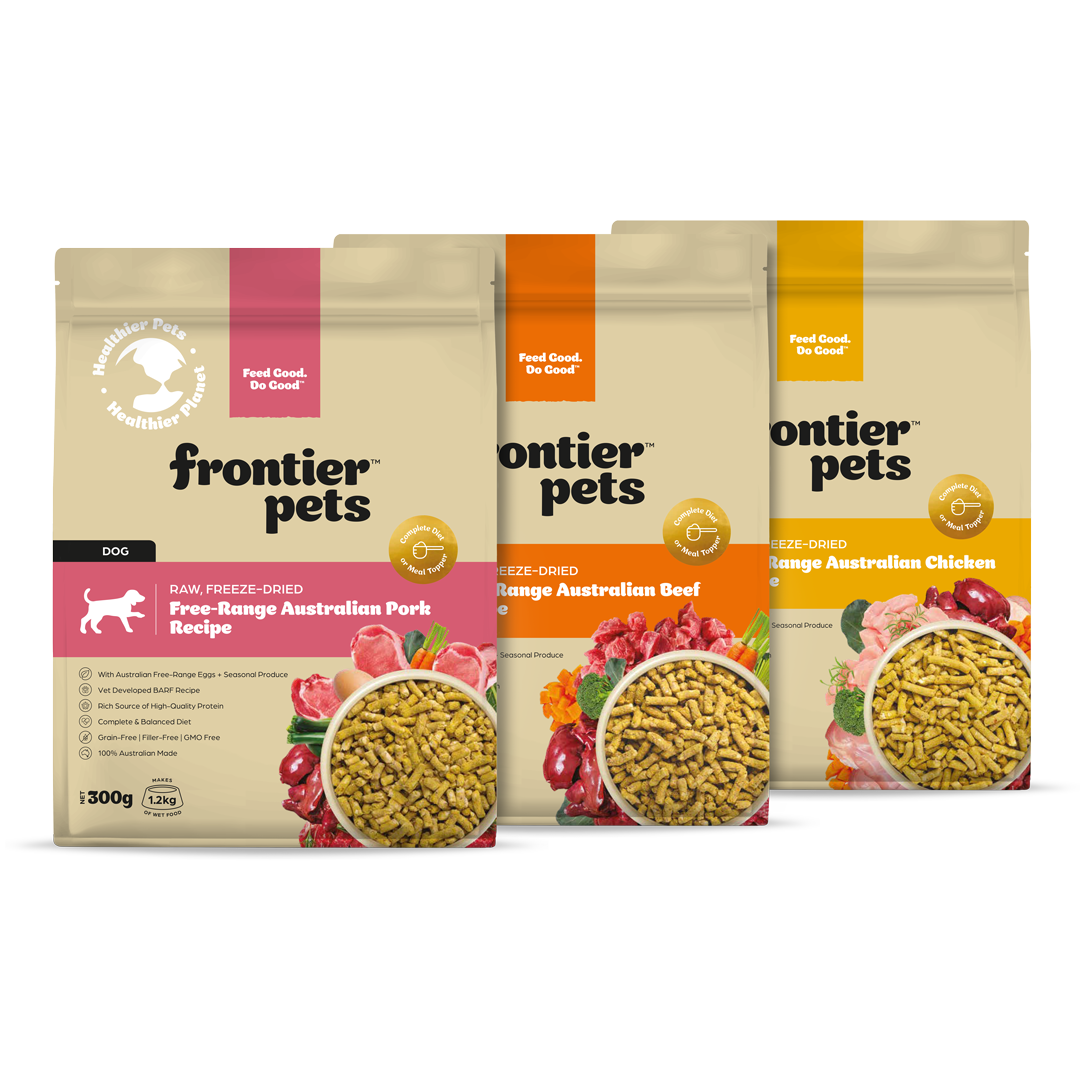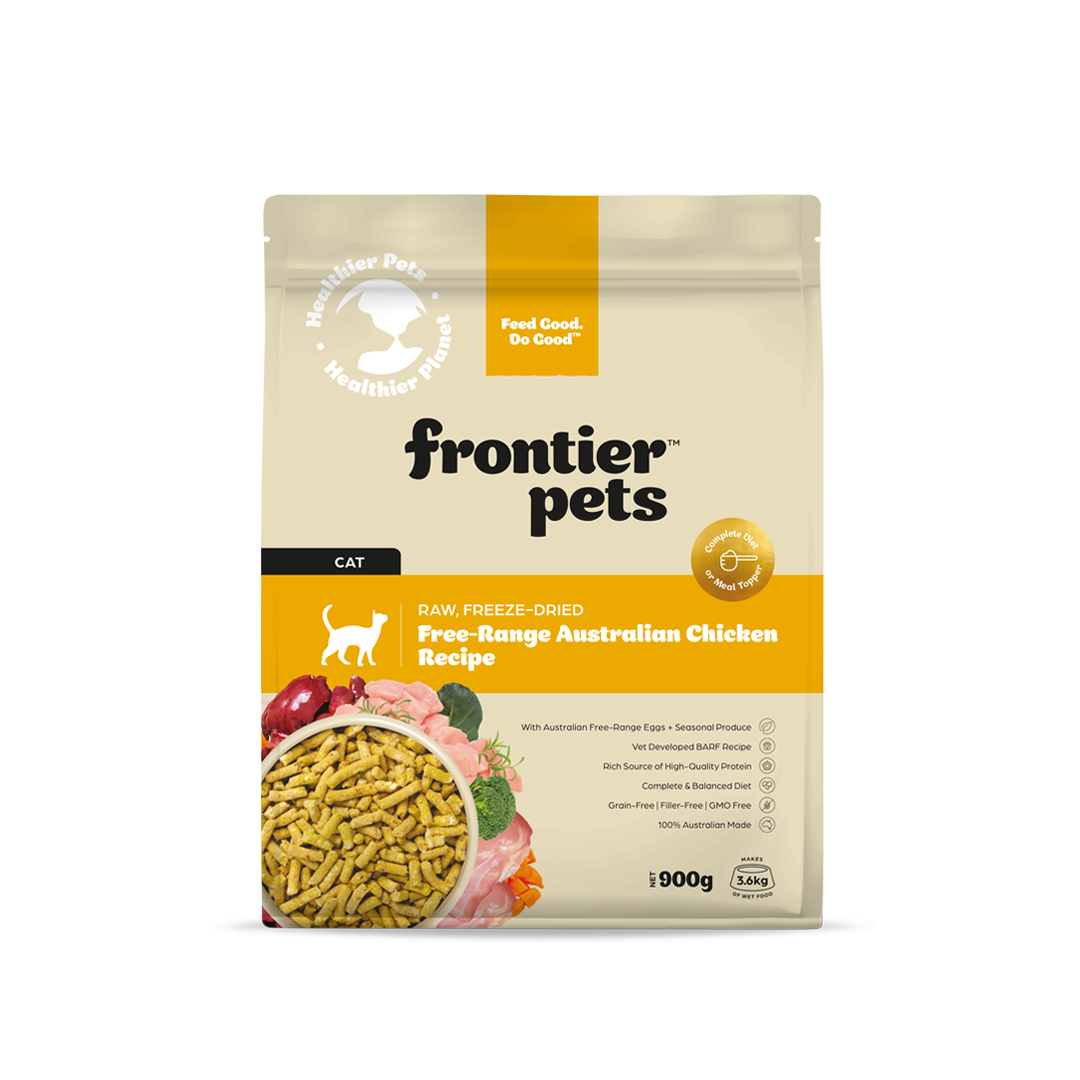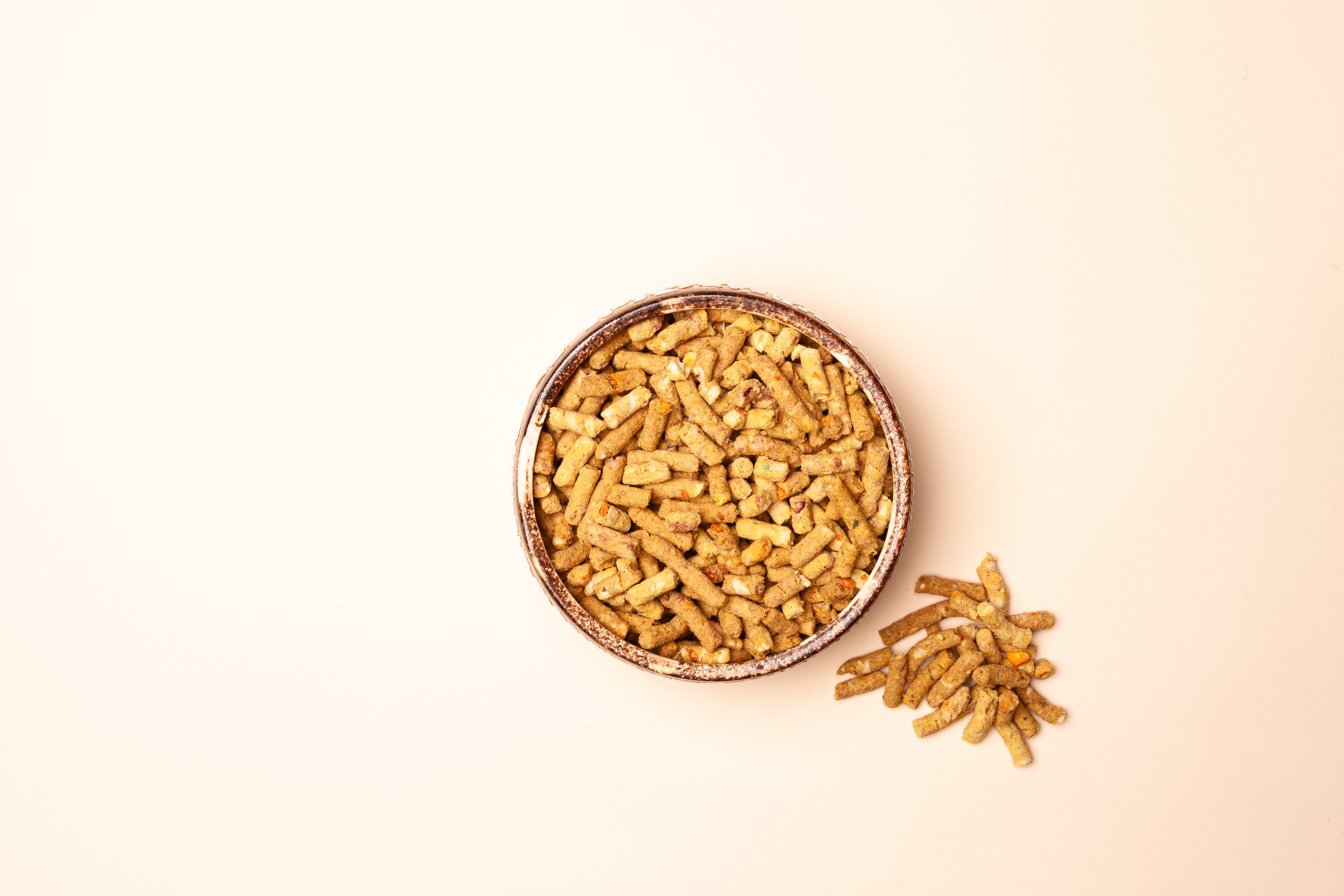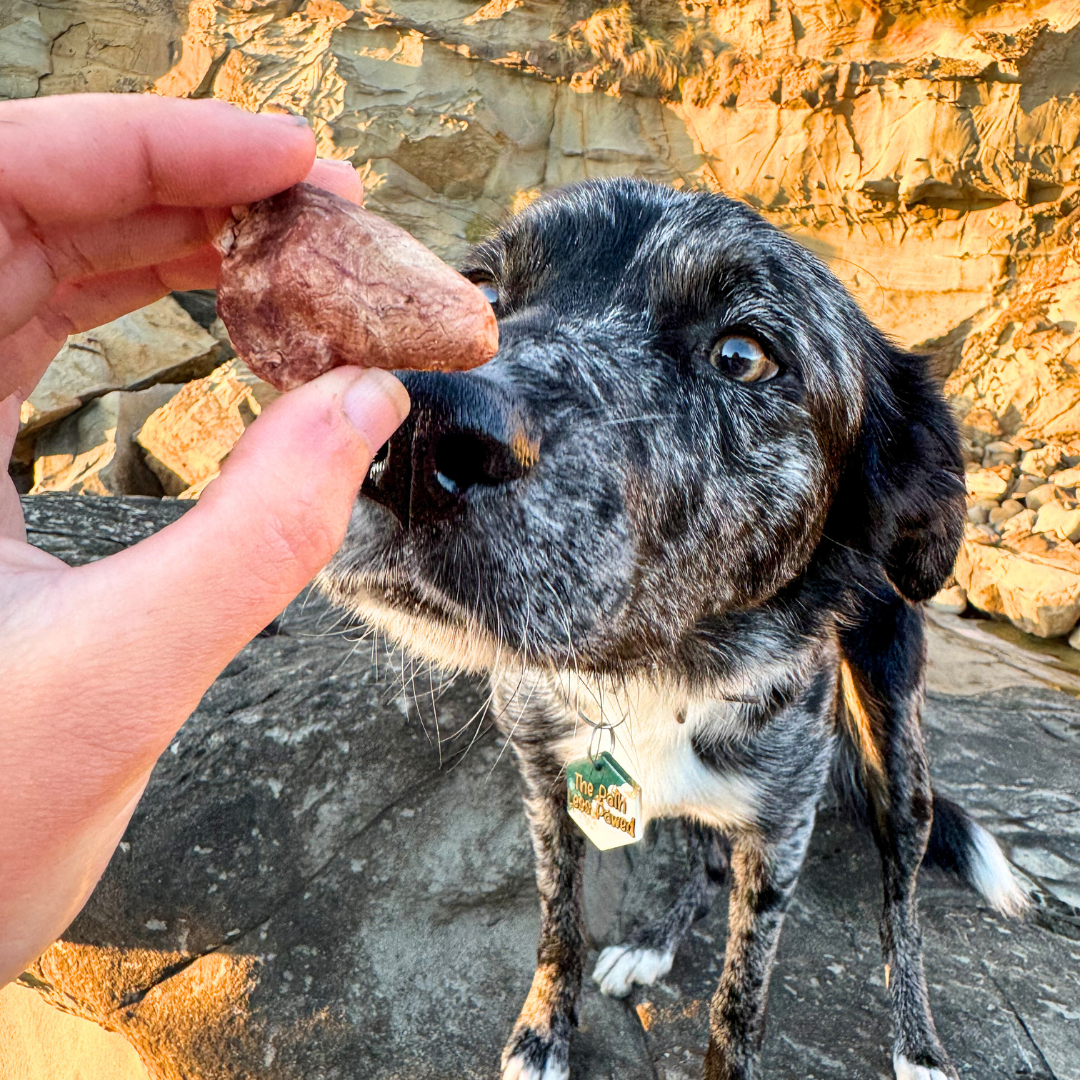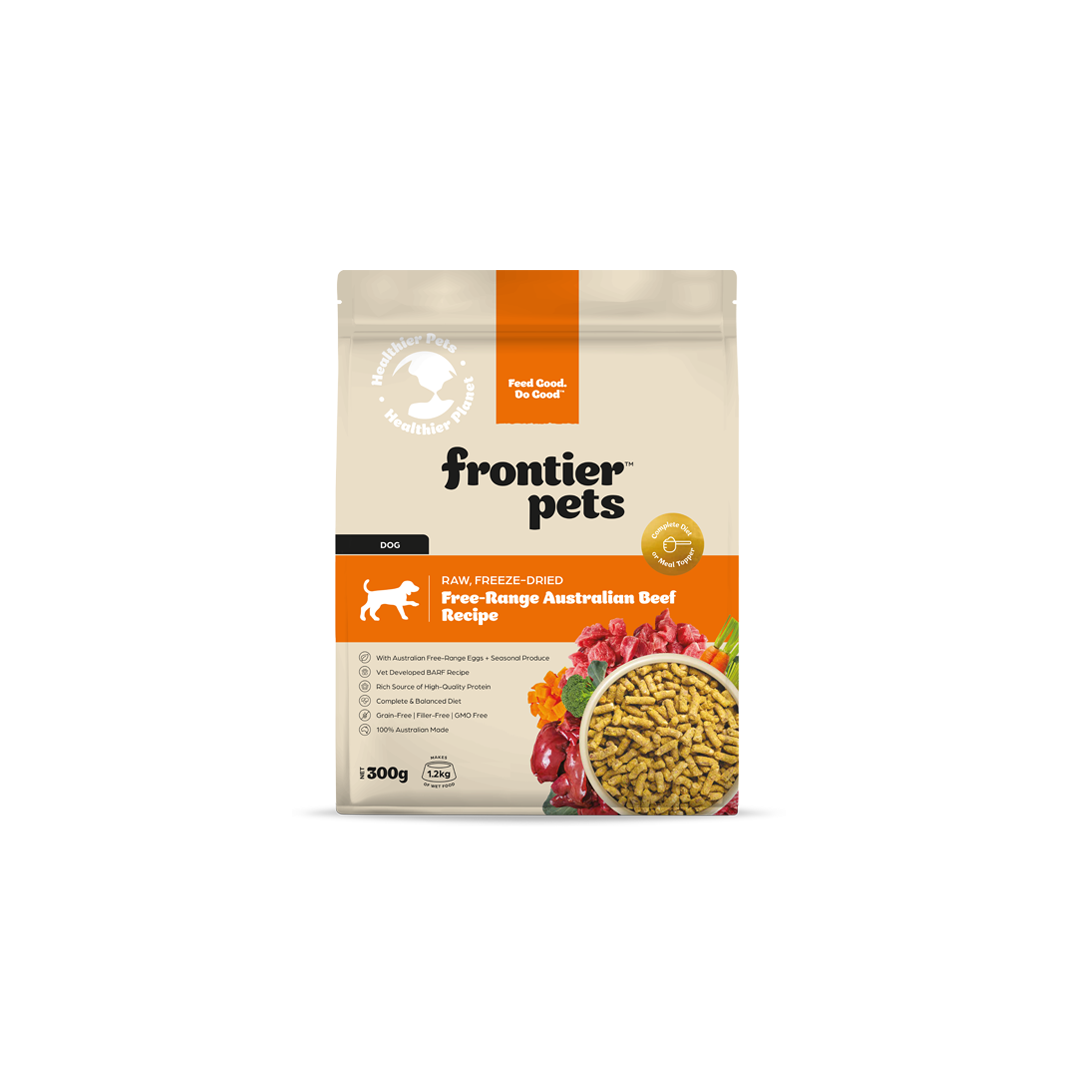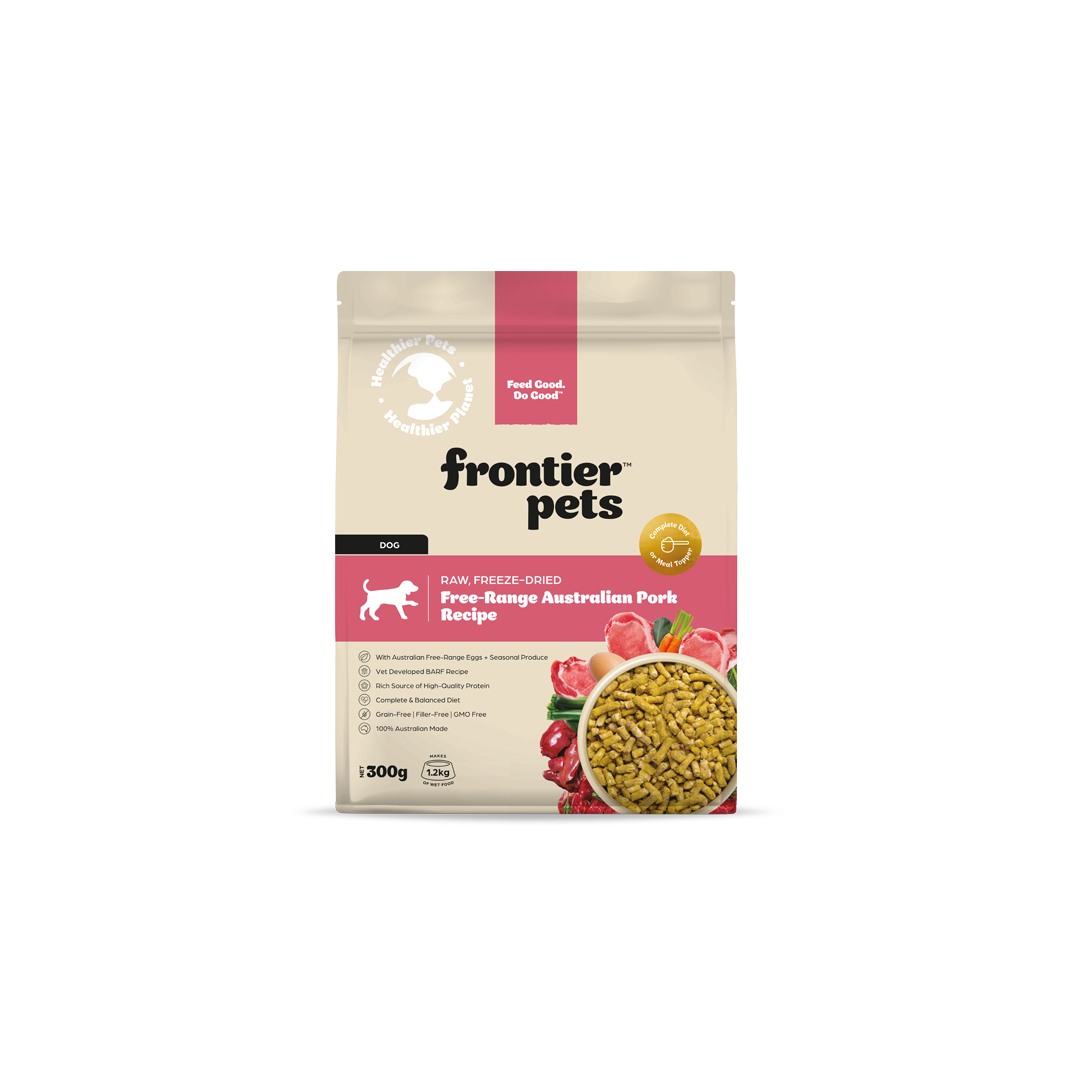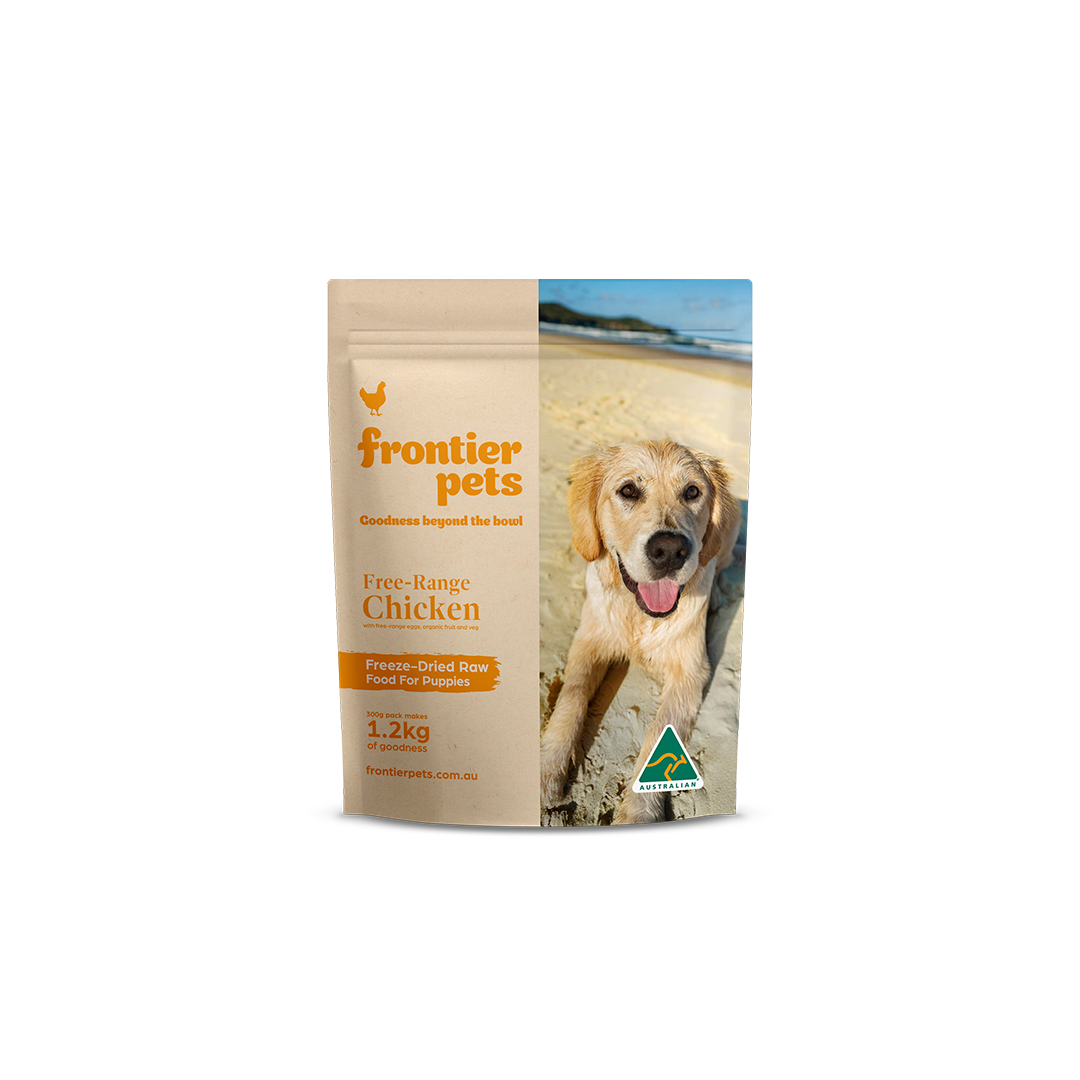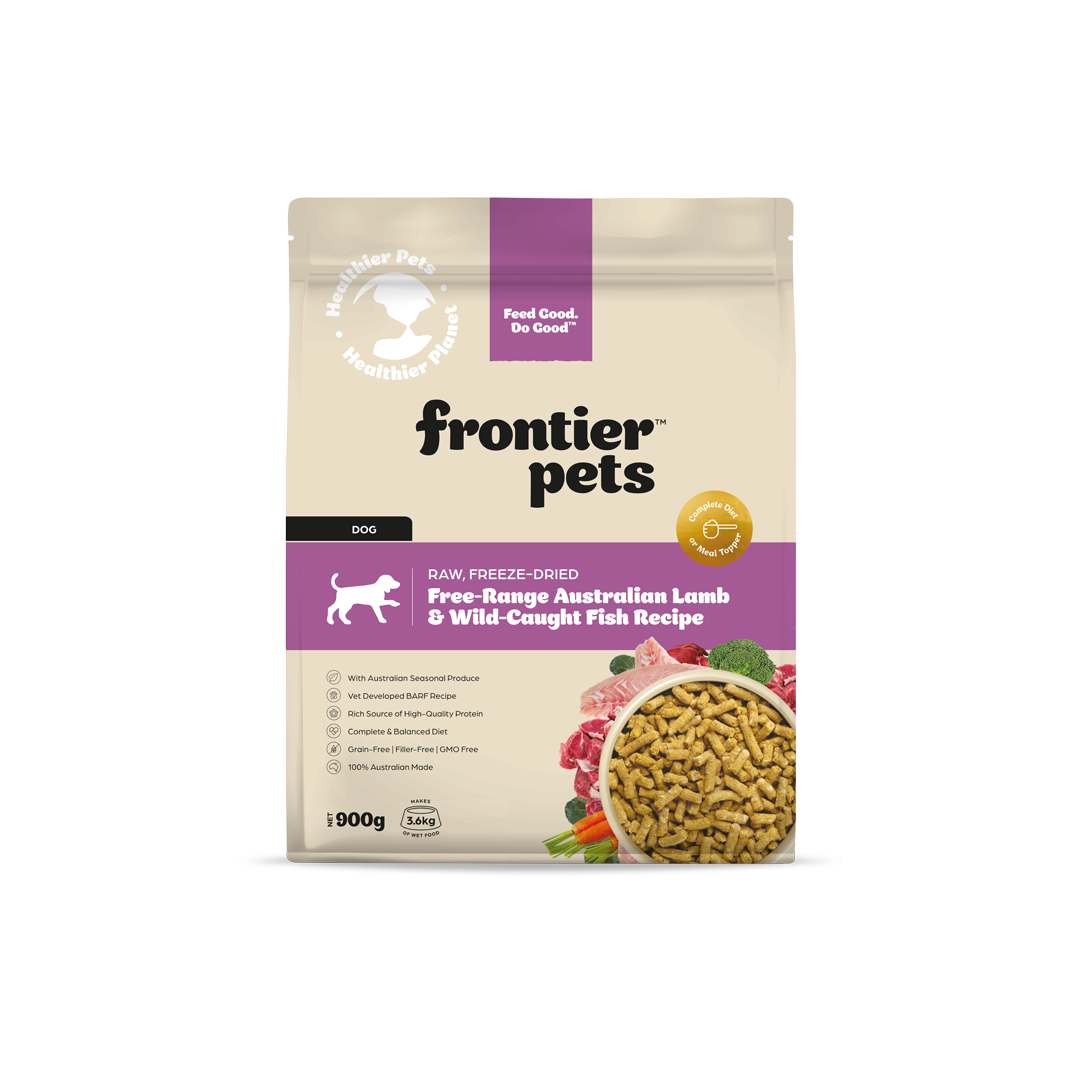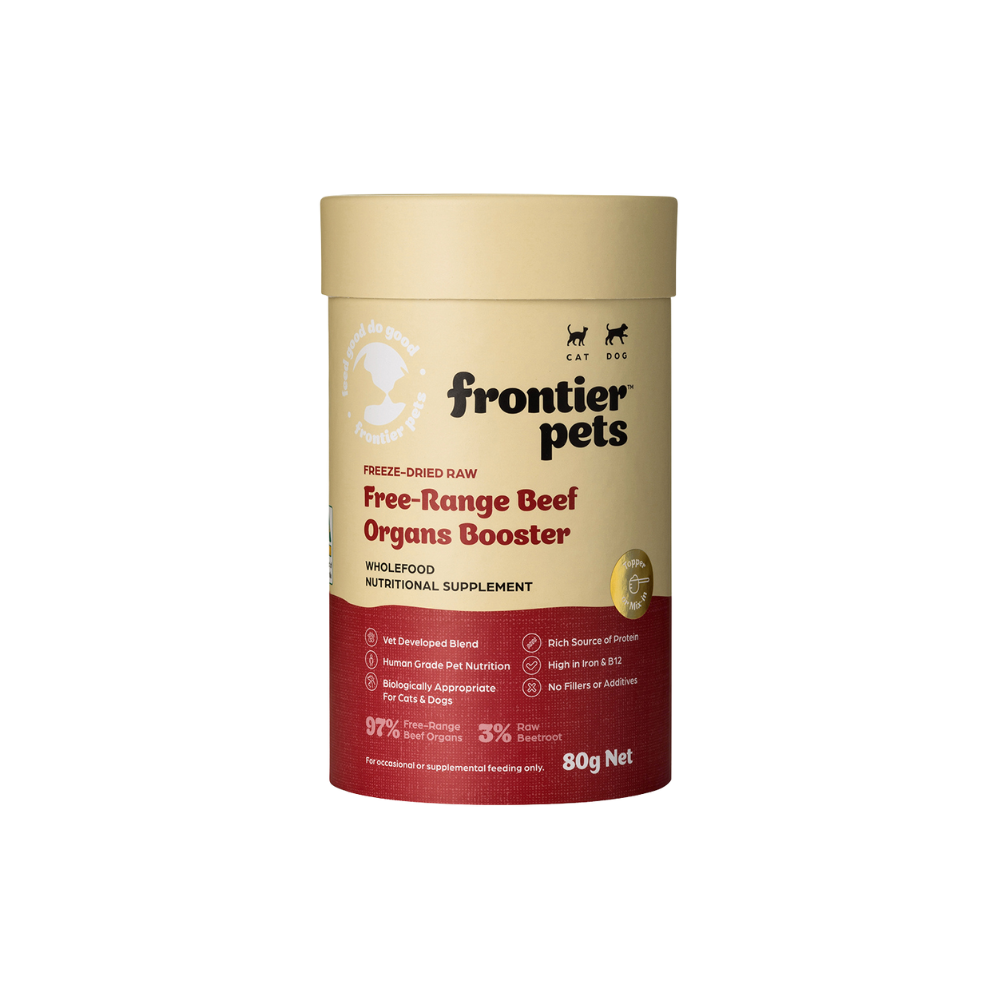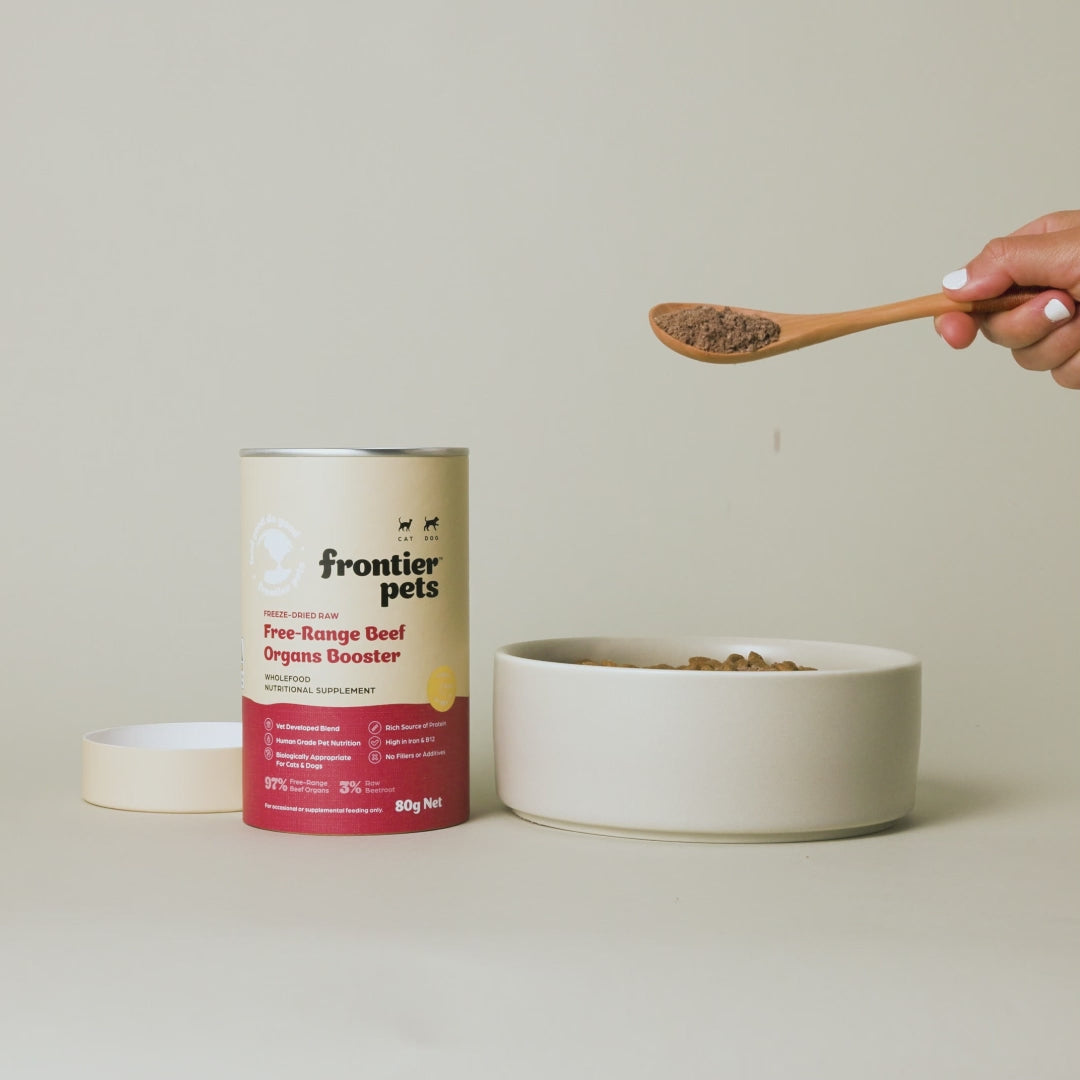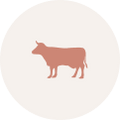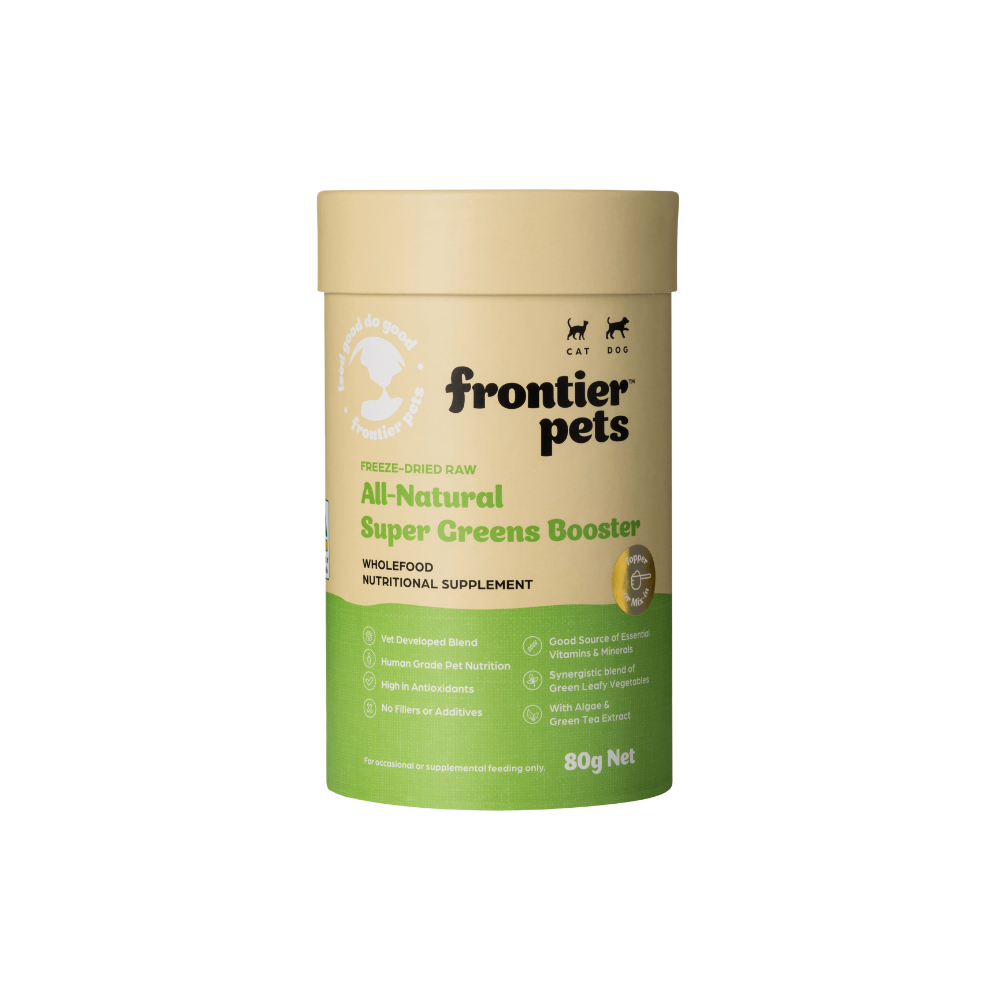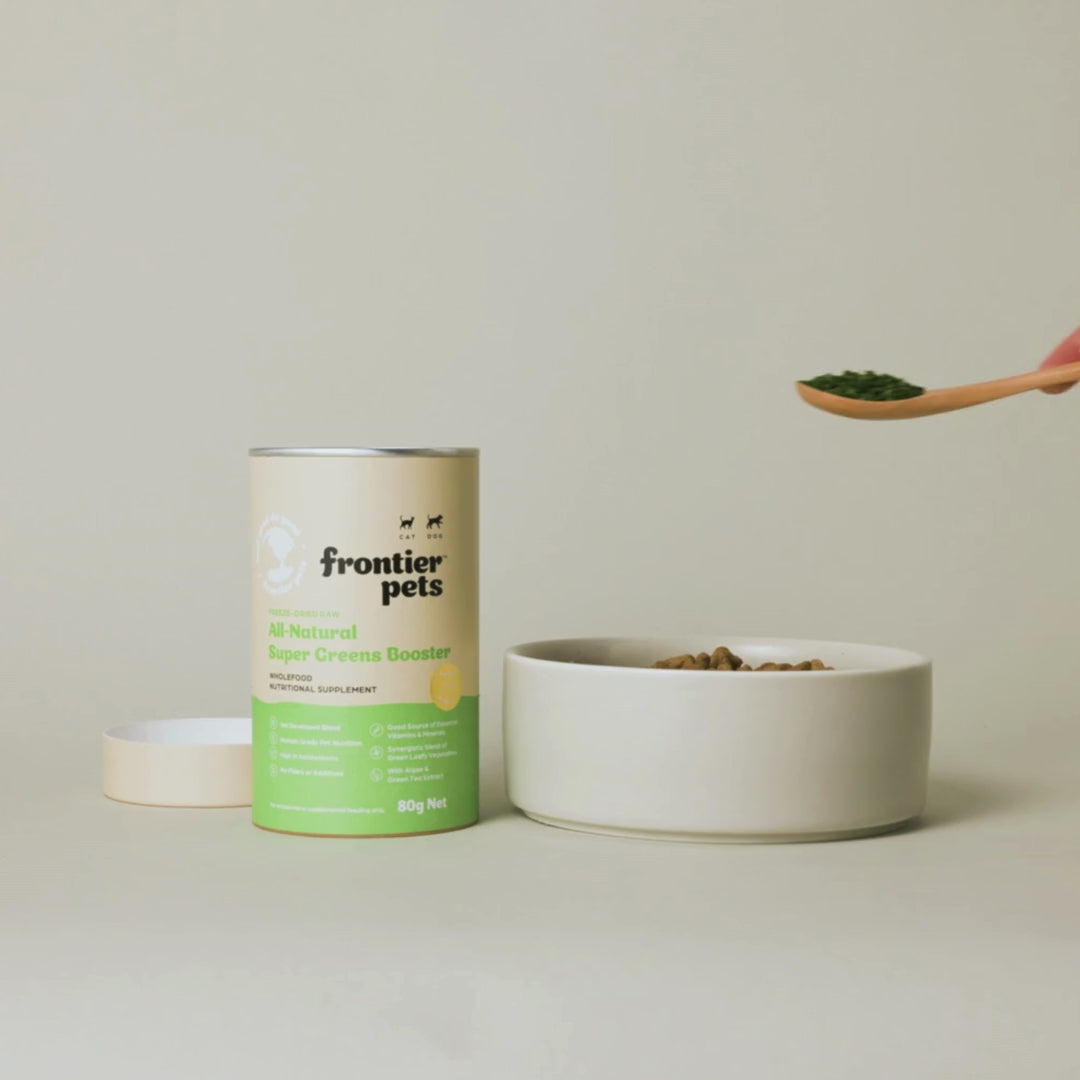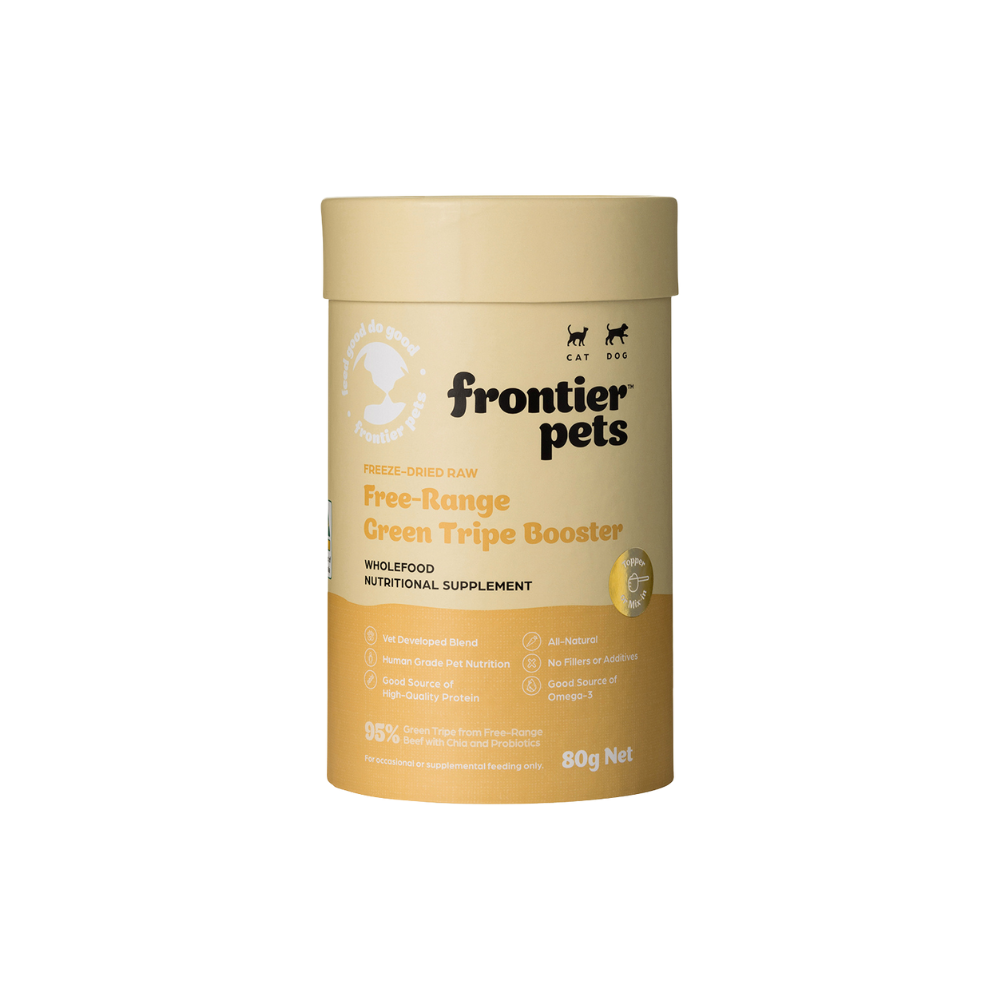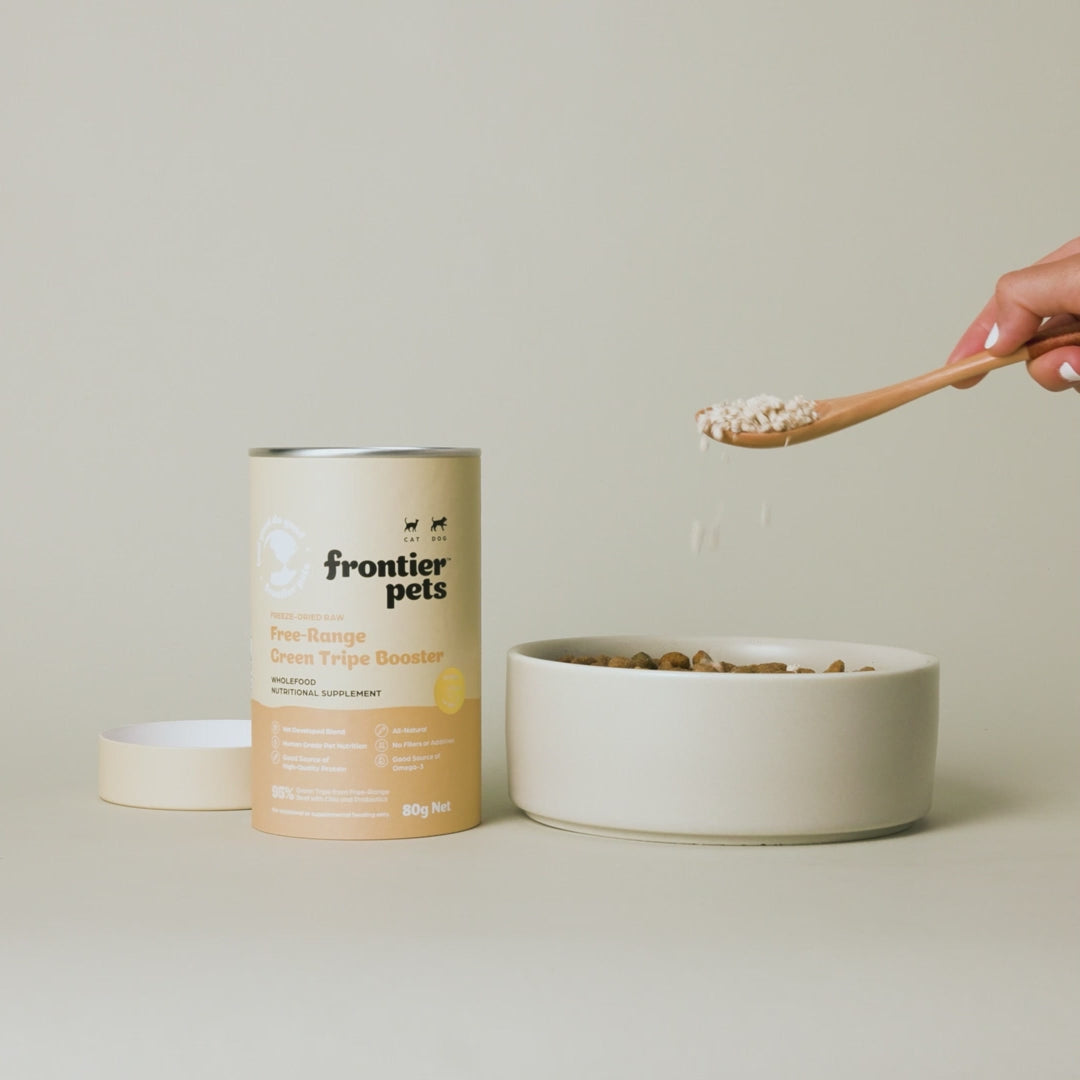Raw Beef Dog Food: The Ultimate Guide to a Healthier Dog

Key Takeaways
- Raw beef is rich in protein, healthy fats, and essential nutrients that promote digestion, energy, and skin health.
- Balanced Diet is Key: A mix of raw beef, organs, bones, and supplements is essential for complete nutrition.
Choosing the right dog food can be daunting with so many options available. You’re probably finding from a quick Google search that a raw diet such as raw beef dog food is a great option, and that’s because it's gaining popularity for its numerous health benefits. In this blog, we’ll explain the benefits of raw beef dog food, debunk misconceptions about raw dog food and provide answers to common questions.
Benefits of Feeding Raw Beef Dog Food
When it comes to your dog's health, offering raw beef as part of their diet can work wonders! This natural option closely aligns with their dietary needs and can provide numerous health benefits:
Nutrient-Rich
Raw beef dog food is rich in high-quality protein, essential fatty acids, vitamins, and minerals. When sourced from free-range, grass-fed cattle, like the ones used by Frontier Pets, the beef is free from artificial hormones and antibiotics. This makes our beef dog food recipe rich in important key nutrients, including protein and iron, ensuring a healthy supply of essential nutrients for your pup, without any fillers.
Natural Enzymes
All raw foods contain natural enzymes which can benefit digestive processes in certain individuals.
Eco-conscious and Sustainable Sourcing
Frontier Pets partners with Provenir, a company that places a strong emphasis on ensuring the eco-conscious sourcing of beef. Provenir's commitment to eco-conscious practices is evident in its approach to raising and processing cattle. Their cattle are raised on pasture, allowing them to roam freely and graze on natural grass, which contributes to their overall well-being. Additionally, the processing of the cattle takes place on-site, minimising stress and ensuring a higher quality of meat. This careful handling results in meat that is of human-grade quality. By choosing products from Frontier Pets and Provenir, you are not only providing your dog with a high-quality raw diet but also supporting sustainable farming practices and eco-conscious treatment of animals.
Healthy Skin and Coat
Grass-fed beef contains a high amount of healthy fats, including omega-3s, omega-6s, and CLAs, in beneficial ratios. Raw beef is rich in Omega-3 and Omega-6 fatty acids, which are known to help contribute to a shinier coat and healthier skin. This balanced natural diet may assist reduce shedding.
Boosts Energy Levels
Raw beef dog food is an excellent source of sustained energy for your dog, thanks to the high-quality protein and natural fats it contains. These nutrients help maintain your dog's energy levels, keeping them active and playful throughout the day.
Proper storage is crucial to maintain the freshness and safety of raw beef dog food, whether you purchase your meat from the butcher or a commercial frozen patty from the pet store. Follow these tips:
- Follow Expiry Dates - Always check expiration dates and follow labels on packaging.
- Freeze - For long-term storage, keep raw beef dog food in the freezer and store it in airtight containers. Thaw it in the refrigerator before feeding your pets, and feed within 24 hours.
- Refrigerate - Thaw it in the refrigerator before feeding your pets, and feed within 24 hours.
- Hygiene - To reduce contamination, thoroughly wash your hands and clean your kitchen where raw food is prepared.

Are there any supplements I should add to raw beef dog food?
Supplements for Raw Beef Dog Food
A properly balanced raw diet should provide all of the necessary nutrients. You should see your vet for advice on what your pup needs. Pet parents do like to give supplements and here are some popular ones that you may like to consider.
- Fish Oil - If you are feeding lean beef meat then adding in some extra oils may be a consideration. Rich in Omega-3 fatty acids, fish oil is beneficial for promoting healthy skin and a shiny coat. It also supports joint health.
- Calcium - Calcium is essential for strong bones and teeth and for general health. A balanced amount is especially important for growing puppies. It is also important to include bones or other calcium sources to balance the recipe and to provide necessary calcium and other minerals. If your diet is not naturally balanced via your ingredient selection, then a calcium supplement may be needed. Always consult your vet as to your dog's needs. It can be dangerous to give too much calcium.
- Probiotics - These are beneficial microorganisms that support a healthy gut environment and aid in digestion. Probiotics may be of assistance in maintaining the overall wellness of your dog.
- Vitamins and Minerals - Speak with your vet about whether to add other multivitamins or other supplements, depending on your dog's specific needs.
Why A Balanced Diet is Important?
Why is it crucial for dogs to have a balanced diet? That’s because feeding them only raw beef meat does not provide the necessary nutrients for them.
While raw beef dog food provides many nutritional benefits, it can be challenging to create a complete and balanced diet solely through raw feed and supplements. It is essential to ensure that your dog is getting all the necessary nutrients in the right amounts. Check out Dr. Ian Billinghurst's book “The BARF Diet” or “Real Food for Dogs & Cats” by Dr. Clare Middle to learn more about how to feed your dog’s raw food a complete and balanced meal. They can help you design a raw dog food recipe that is biologically appropriate for your dog.
Additionally, it can be helpful to look at examples of well-balanced raw dog food recipes with essential nutrients, such as the Frontier dog food recipe. Frontier is a reputable brand that focuses on providing a complete and balanced diet for dogs. Studying their recipe can give you a good idea of the necessary ingredients and proportions to include in your homemade raw beef dog food.
Remember, every dog is unique, and their nutritional requirements may vary based on factors such as age, breed, weight, and activity level. It is always recommended to consult with your holistic veterinarian before transitioning to raw feeding and making any dietary changes for your dog. They can provide specific guidance tailored to your pet's individual needs.
- Dr Kathy Cornack, Holistic Veterinarian
How do I calculate the right portion size for my dog when feeding raw beef?
When calculating the right portion size for your dog when feeding a raw diet, it's important to consider their individual needs. While there is no one-size-fits-all answer, there are some general rules and guidelines that can help you determine the appropriate portion size.
Calculating the Right Portion Size
Portion sizes depend on your dog's weight, age, activity level, and health. As a general guideline:
- Adult Dogs - Dogs eating exclusively raw food typically need 2-3% of their body weight in food per day: this includes the whole diet: meat, organ meats, vegetables bones etc. For example, a 10kg dog should eat approximately 200-300g of balanced raw beef dog food daily.
- Adjust and Monitor Activity Level - Adjust the portion size based on your dog's activity level. More active dogs may need larger portions, while less active dogs may require less. Younger dogs generally need more food, whilst older, sedentary dogs need less.
- Weight Gain or Loss - If you notice a change in weight or condition, adjust the amount fed accordingly. Always consult your vet to discuss the appropriate amount and type of food to give your dog.
If you are interested in purchasing Frontier Pets Raw Beef Dog Food, please see a more detailed guide on daily dog food portion sizes.
Common Misconceptions About Feeding Raw Beef to Dogs
Myth #1 - Raw meat is a risk for dogs (bacterial risks)
It's true that raw meat does contain more bacteria than other foods so take care with your food hygiene practices as is recommended when handling meat products. This will minimize any risk to the people in the house.
As for your doggo, they are biologically designed to eat raw meat in the wild and have a very acidic stomach which helps to neutralise the bacteria after the food is eaten. Also, when raw beef is sourced from human-grade, free-range suppliers like Frontier Pets, the risk is significantly minimised.
Myth #2 – All beef meat diets are nutritionally balanced
An all-beef meat diet is definitely not balanced. A balanced raw beef diet should include organs and bones, and ground vegetable matter. It is possible to formulate one without the use of supplements, Consult your holistic vet for advice and assistance. There is also software available to help you formulate using natural ingredients you have at home e.g. animal diet formulator.
Myth #3 – Bones is not good for dogs' dental health
That’s a myth. Naturally, dogs need to chew and rip meat from the bone to have good dental hygiene. All soft diets can contribute to plaque buildup. It is better to feed tough chewing steak than ground mince as this provides more chewing action.
Chewing on whole bones can provide several dental benefits for dogs. The act of tearing and chewing on the bone helps to remove plaque and tartar build-up on their teeth. The gnawing action also massages the gums, promoting healthy gum tissue and aiding to prevent gum disease.
Myth #4 Feeding dogs raw food is expensive
While raw food may be more expensive than traditional kibble for large breed dogs, the health benefits may outweigh the costs. If your dog is in optimal health, then there will be fewer vet bills. Holistic vets agree that a balanced raw food diet is a worthwhile investment in a healthy pet's overall well-being.
Myth #5 - Raw Bones are Dangerous for Dogs
True, raw bones can pose a danger to dogs who eat them fast or swallow bones of an inappropriate size. Cooked bones are more likely to be an issue as they can splinter and dogs can choke on the tiny pieces which can cause serious damage to the dog’s mouth and intestine. However, raw meaty bones is not and are also good for their dental health.
Raw bones can be a healthy addition to a balanced natural diet. Bones such as beef marrow bones or knucklebones, are a natural source of important nutrients for dogs. They are filled with essential minerals, like calcium, phosphorus, and magnesium, which are crucial for strong bones and teeth. Chewing on raw bones also helps to keep a dog's teeth clean., aids their mental health and keeps their jaws strong.
Because of the risks, it is essential to choose appropriate bones for your dog's size and personality and to supervise your dog while they chew on raw bones. This will allow you to intervene if any issues arise, such as your dog attempting to swallow a large piece or becoming overly aggressive with the bone. Always provide fresh water for your dog to drink during and after bone-chewing sessions. To learn more about how to feed your dog raw bones, check our Dr. Ian Billinghurst book “Give Your Dog A Bone”.

Why Frontier Pets is the Better Option
Frontier Pets' Free-Range Beef | Raw Freeze-Dried - Adult is a top choice for pet owners looking for a balanced raw dog food diet that is easy to prepare. This nutritious and convenient meal is made from 100% free-range, grass-fed beef sourced from eco-conscious Australian farmers.The freeze-drying process preserves essential nutrients without artificial preservatives. Plus, it's GMO-free, antibiotic-free, and filler-free.
Check out the Frontier Pets Reviews from our happy customers!
Conclusion
Feeding your dog a raw food diet can have many great benefits. Just make sure to store the food properly, ensure the diet is balanced, and give the right portion sizes. With a little planning and a chat with your vet, you can make raw meat, such as raw beef, a safe and healthy choice for your pets. Raw meat, such as raw beef, can be a safe and healthy choice for your beloved dog. Feeding your dog raw meals can be a really rewarding experience, but it does require some know-how and dedication. Once you understand the raw food diet, its benefits, and any potential issues, you can confidently start a healthy raw-feeding journey with your beloved pets. Remember, this blog provides general information. Always check with your vet before switching your pup to any new diet or if you have any concerns.
This general health advice comes from holistic veterinarian Dr. Kathy Cornack. For any specific health concerns about your pet, please consult your veterinarian. Individual animal needs may vary. This is general advice only.
Frequently Asked Questions (FAQs)
Beef can be a common protein allergen for some dogs. If your dog has known allergies or sensitivities, it is important to consult with your veterinarian before introducing beef into their diet. Your vet may recommend an elimination diet to identify the specific allergens affecting your dog.
While it's good to consider that your dog may not be allergic to beef, it's important to note that many commercial dog kibbles contain gluten and wheat, which may be common allergens for some dogs. If your dog has shown signs of allergies or sensitivities to these ingredients, it may be worth considering a switch to a raw beef diet.
If your dog is allergic to beef, there are alternative protein sources that you can consider for their raw food diet. Some options include turkey, chicken, lamb, or fish. These proteins can offer similar nutritional benefits to beef without triggering any allergies.
It's important to note that while beef allergies can occur, they are relatively uncommon. Most dogs tolerate beef without any issues and can benefit from its nutrient-rich properties. However, every dog is different, so it's essential to monitor your dog's response to the food and consult your vet if you have any concerns.
Remember, a balanced and diverse diet is key for your dog's overall health. If you suspect that your dog has a beef allergy or any other food sensitivities, work closely with your veterinarian to identify the best options for their specific dietary needs and ensure they are getting all the necessary nutrients.
Now that you have a better understanding of raw beef dog food, you can make an informed decision about incorporating it into your dog's diet.
Most vets advise against making raw dog food at home, whilst most holistic vets are generally supportive. Each case is different so find a vet near you who is knowledgeable about raw feeding and get their advice if the diet is right for your pup or not.
We make sure every batch is a vet-approved recipe designed by Dr Kathy Cornack and formulated to meet or exceed the nutritional levels established by the Association of American Feed Control Officials (AAFCO) and the National Research Council (NRC) UK to be a complete and balanced food for adult dogs, puppies, and adult cats.
Fatty meats, such as bacon, pork belly, sausage, and poultry skin, can be harmful to dogs. Their high-fat content can lead to pancreatitis if eaten in excess. Cooked bones are also dangerous as they can splinter and cause internal damage.
While raw meat diets are popular, always consult with your veterinarian for specific dietary recommendations for your dog. They can provide tailored advice based on your dog's breed, age, and overall health.
This general health advice comes from holistic veterinarian Dr. Kathy Cornack. For any specific health concerns about your pet, please consult your veterinarian. Individual animal needs may vary. This is general advice only.

